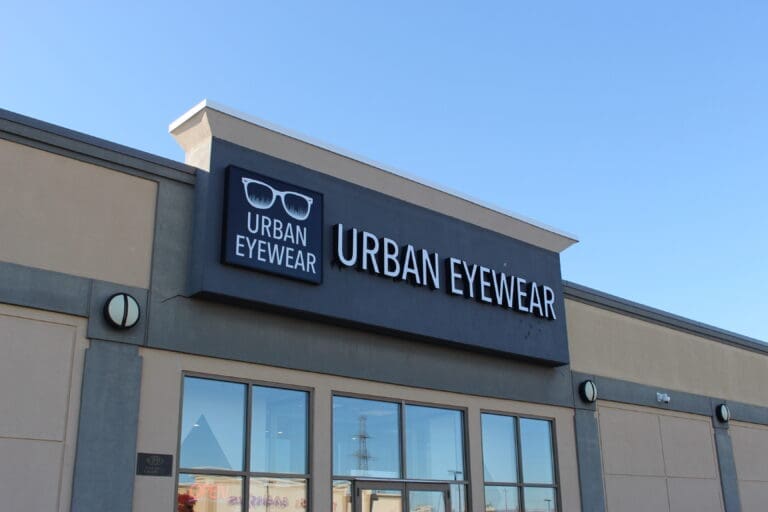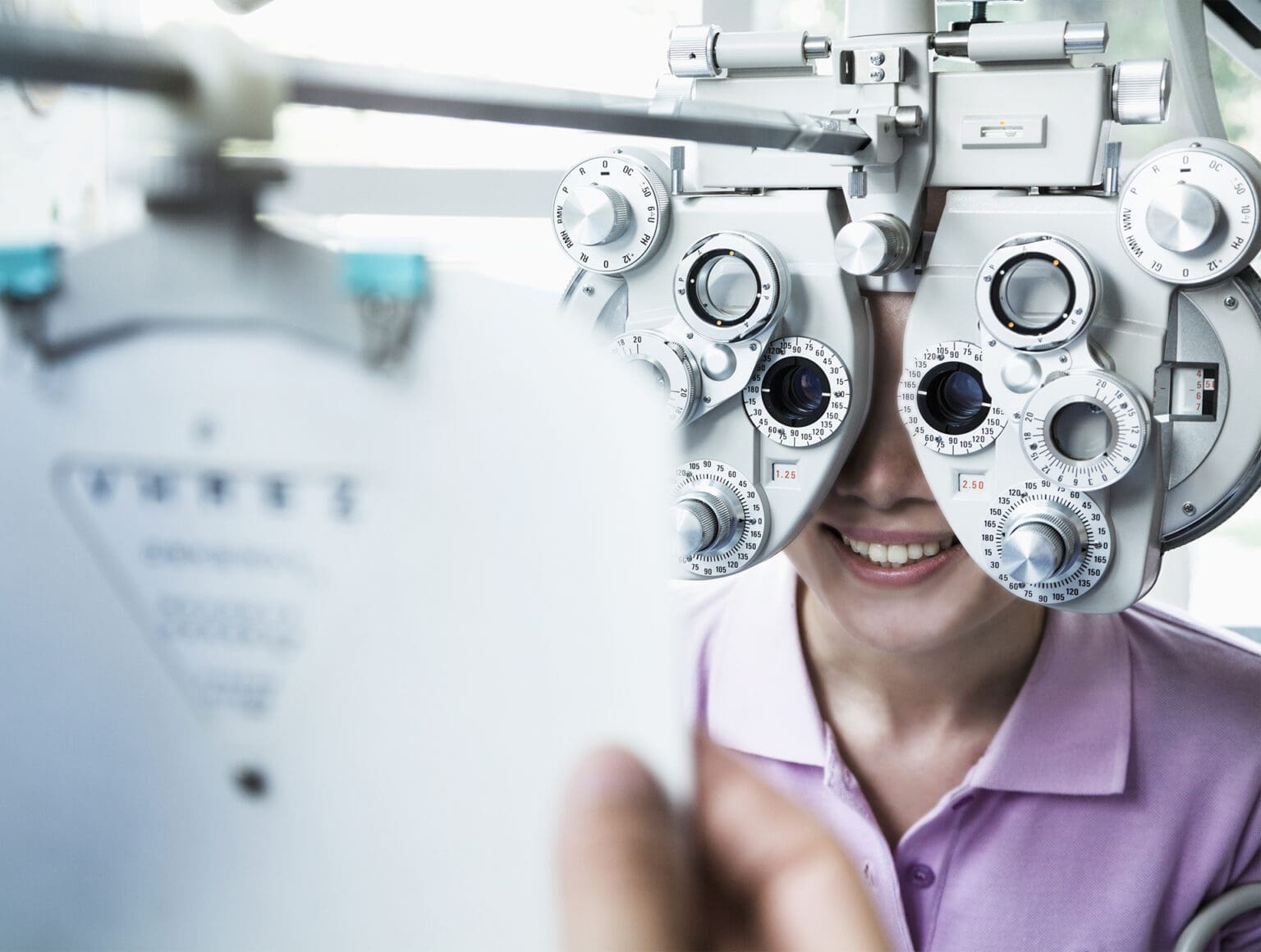
Comprehensive Eye Exams
Welcome to Urban Eyewear, your top spot for eye exams in Thunder Bay.
Book your appointment today to get personalized care from our expert optometrists.
Make your eye health a priority by scheduling a full eye exam. Whether you need a routine check-up or have vision concerns, our experienced team is here to help.
What to Expect During an Eye Exam
A typical exam includes a series of tests to evaluate your vision and check for eye diseases.
- Visual Acuity Test
- Refraction Assessment
- Tonometry Test
- Retinal Examination
- Eye Muscle Movement Test
- Slit Lamp Examination
- Visual Field Test
- Pupil Response Test

When Should I Book an Eye Exam?
Most adults should have an eye exam every 1–2 years, depending on their vision needs.
How often you need an eye exam can vary based on your lifestyle, vision needs, and any specific risks, like severe nearsightedness or a family history of eye diseases.
We recommend our student patients get yearly check-ups because of the heavy visual demands of studying, especially for those with nearsightedness.
Optometrist Services
Comprehensive Eye Exams
Regular eye appointments are crucial for catching vision problems and eye diseases early. They ensure your vision prescription is accurate and give insights into your overall eye health, helping prevent serious conditions like glaucoma and cataracts.
Eye Care for Students
Annual testing is important for students because studying puts a lot of strain on their eyes. Early detection of vision problems supports good academic performance and overall eye health, which is key to their success in school.
Pediatric Eye Care
Pediatric eye care is crucial for identifying vision problems early in children. Regular eye exams are key for ensuring proper visual development and detecting issues such as lazy eye, and supporting their school performance.
Macular Degeneration
Regular vision tests are important for spotting macular degeneration early and keeping your central vision. If untreated, this condition can cause severe vision loss. Routine check-ups help catch it in time, slow its progress, and keep your vision and quality of life intact.
Ocular Diseases
Regular eye tests are important for spotting and treating ocular diseases early. Conditions like glaucoma, cataracts, and diabetic retinopathy can cause serious vision loss if not treated. Early intervention helps manage these diseases effectively.
Eye Allergies & Infections
Addressing eye allergies and infections is important to avoid discomfort and complications. Managing allergies and infections well keeps your vision clear and maintains overall eye health, reducing the risk of long-term damage.

Frequently Asked Questions
Most adults should get an eye exam every 1–2 years, based on their vision needs and risk factors. If you have conditions like high myopia, diabetes, or a family history of eye diseases, you might need more frequent exams. Children and students should have annual eye exams to check their visual development and address any changes quickly.
A comprehensive eye exam includes various tests to check your vision and eye health. These tests usually cover visual acuity, refraction, eye muscle function, visual fields, and both slit-lamp and retinal exams. Your eye doctor will review your overall eye health, update your prescription if needed, and talk with you about any concerns or treatment options.
Even if your vision seems fine, regular eye exams are important for spotting early signs of eye diseases that might not show symptoms, such as glaucoma, macular degeneration, and diabetic retinopathy. Catching and treating these conditions early can help prevent vision loss and keep your eyes healthy over time. Eye exams can also uncover other health issues, like diabetes and high blood pressure.
Yes, eye exams can reveal signs of various health problems like diabetes, high blood pressure, high cholesterol, and even some cancers. The blood vessels and nerves in your eyes can reflect your overall health, helping eye doctors spot potential issues and suggest further medical evaluation if needed.
For your eye exam appointment, bring your current glasses or contact lenses, a list of any medications you’re taking, and any relevant medical history or information about your eye health. If you have vision insurance, bring your insurance card and any required documents. It’s also a good idea to prepare any questions or concerns you have about your vision or eye health to discuss with your eye doctor.
